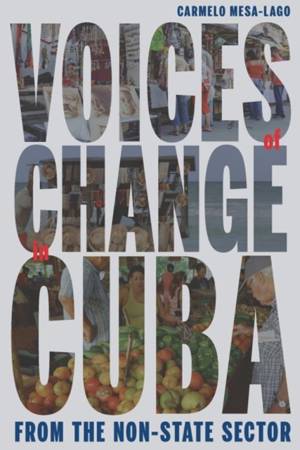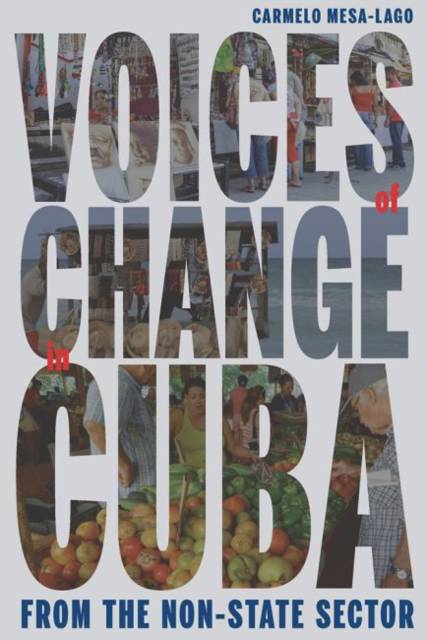
- Afhalen na 1 uur in een winkel met voorraad
- Gratis thuislevering in België vanaf € 30
- Ruim aanbod met 7 miljoen producten
- Afhalen na 1 uur in een winkel met voorraad
- Gratis thuislevering in België vanaf € 30
- Ruim aanbod met 7 miljoen producten
Zoeken
Voices of Change in Cuba from the Non-State Sector
€ 76,45
+ 152 punten
Omschrijving
More than one million Cubans, representing thirty percent of the country's labor force, currently make up the nonstate sector. These include self-employed workers and micro-entrepreneurs, sharecropping farmers, members of new cooperatives, and buyers and sellers of private dwellings. This development represents a crucial structural reform implemented by Raúl Castro since becoming Cuba's leader in 2006, and may become the most dynamic economic force for the country's future. Despite this phenomenon, little has been published about the demographic makeup of this group (age, gender, race, and education), as well as their economic conditions and aspirations. Based on eighty in-depth interviews recently conducted in Cuba, this book captures actual voices from this evolving economic sector. It details workers' level of satisfaction with what they do and earn, profits (and how they are allocated between consumption and investment), plans to expand their activities, receiving foreign remittances and microcredit, competition, forms of advertising, and payment of taxes. Perhaps most revealing are the speakers' views on the obstacles they face and their desires for change and improvement. As such, the book offers fascinating insights into today's Cuban economy from the nonstate sector, while also reflecting on its potential for development and the obstacles it faces.
Specificaties
Betrokkenen
- Uitgeverij:
Inhoud
- Aantal bladzijden:
- 176
- Taal:
- Engels
- Reeks:
Eigenschappen
- Productcode (EAN):
- 9780822965091
- Verschijningsdatum:
- 17/04/2018
- Uitvoering:
- Paperback
- Formaat:
- Trade paperback (VS)
- Afmetingen:
- 150 mm x 231 mm
- Gewicht:
- 317 g

Alleen bij Standaard Boekhandel
+ 152 punten op je klantenkaart van Standaard Boekhandel
Beoordelingen
We publiceren alleen reviews die voldoen aan de voorwaarden voor reviews. Bekijk onze voorwaarden voor reviews.







